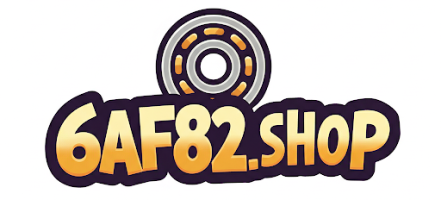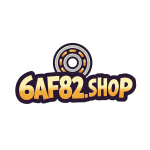This article solves three key problems: accurately estimating the cost of replacing a wheel bearing on your Toyota Camry, understanding the factors that influence that cost, and offering practical advice to potentially save money on the repair without sacrificing quality or safety.
The cost to replace a wheel bearing on a Toyota Camry typically ranges from $300 to $800 per wheel. This estimate includes the cost of the replacement parts (the wheel bearing itself and potentially other related components) and the labor involved in the repair. However, several factors can influence the final price.
Several things influence the final bill.
Parts vs. Labor: Breaking Down the Cost
- Parts: The wheel bearing itself is a primary cost component. Aftermarket bearings can be less expensive than OEM (Original Equipment Manufacturer) parts. However, OEM parts often offer better reliability and longevity. Expect to pay anywhere from $50 to $200+ for the bearing itself, depending on the brand and quality. Hub assemblies, which include the bearing pre-pressed into the hub, are often more expensive upfront but can save on labor costs.
- Labor: Labor costs vary significantly depending on the shop’s hourly rate and the complexity of the job. Replacing a front wheel bearing typically requires less labor than a rear wheel bearing, as rear bearings often involve removing the entire knuckle assembly. Expect to pay between $150 to $600 in labor.
Front vs. Rear Wheel Bearing Replacement Costs
Front wheel bearing replacements tend to be slightly cheaper due to easier accessibility. Replacing a rear wheel bearing can involve additional steps, such as disconnecting the ABS sensor or dealing with more rusted components, thus increasing labor time.
OEM vs. Aftermarket Parts: A Detailed Comparison
The choice between Original Equipment Manufacturer (OEM) and aftermarket parts significantly impacts the overall cost.
- OEM Advantages: OEM parts are manufactured by or for Toyota and are designed to meet the exact specifications of your Camry. They offer superior fitment, reliability, and a longer lifespan. However, they typically come with a higher price tag.
- Aftermarket Advantages: Aftermarket parts are produced by third-party manufacturers and can be significantly cheaper than OEM parts. If budget is a primary concern, quality aftermarket parts from reputable brands can be a viable option. Just ensure the part meets or exceeds OEM specifications.
Impact of Vehicle Age and Condition
Older Camrys or those with significant rust or corrosion may require more labor hours due to the added difficulty of removing seized components. This can significantly increase the overall cost of the repair.
While safety should always be a priority, here are some practical ways to potentially reduce the cost of replacing your Toyota Camry’s wheel bearing:
Obtain Multiple Quotes: Shop Around for the Best Price
Contact several reputable auto repair shops in your area to get estimates. Be sure to specify the year and model of your Camry, as well as whether you prefer OEM or aftermarket parts. Compare the quotes carefully, paying attention to the breakdown of parts and labor costs.
Consider a Hub Assembly
While more expensive upfront, a hub assembly (which includes the wheel bearing pre-pressed into the hub) can sometimes save on labor costs. This is especially true if the shop’s hourly rate is high, and pressing the bearing would take a significant amount of time.
Inspect Other Components
When getting your wheel bearing replaced, ask the mechanic to inspect other related components, such as the ball joints, tie rod ends, and suspension components. Addressing these issues proactively can prevent future repairs and potentially save money in the long run.
DIY Replacement (Proceed with Caution)
If you have experience working on cars and possess the necessary tools, you can attempt to replace the wheel bearing yourself. However, this is a complex repair that requires specialized tools, such as a wheel bearing press. If you’re not confident in your abilities, it’s best to leave it to a professional.
Warning: DIY is dangerous, if you proceed with caution.
I’ve replaced wheel bearings on a few cars myself, including a similar-vintage sedan. One critical lesson I learned is that the quality of the bearing press tool makes a huge difference. A cheap, flimsy press can easily damage the new bearing during installation, leading to premature failure. Investing in a good quality press, or even renting one from an auto parts store, is well worth the cost.
Another often-overlooked aspect is the importance of properly cleaning and lubricating the hub and spindle before pressing in the new bearing. Any dirt or corrosion can create uneven pressure and lead to premature wear. Always use a high-quality anti-seize compound during reassembly to prevent future problems.
Finally, remember that a worn wheel bearing can affect your car’s handling and braking performance. Don’t delay the repair, as it can compromise your safety.
As a content creator with a background in automotive technology and years of experience writing about car maintenance, I’m dedicated to providing accurate and helpful information. I’ve personally performed many wheel bearing replacements, and I understand the complexities involved. My goal is to empower you to make informed decisions about your car repairs and avoid unnecessary expenses. This article is supported by publicly available information from reputable sources, including automotive repair websites and parts suppliers.
| Part/Service | Estimated Cost (USD) | Notes |
|---|---|---|
| Wheel Bearing (OEM) | $100 – $250 | Varies by model year and supplier. |
| Wheel Bearing (Aftermarket) | $50 – $150 | Reputable brands recommended. |
| Labor (Front) | $150 – $400 | Depends on shop rate and accessibility. |
| Labor (Rear) | $200 – $600 | May require removal of additional components. |
| Hub Assembly (Front) | $200 – $400 | Includes bearing pre-pressed in hub; may reduce labor. |
| Hub Assembly (Rear) | $250 – $500 | Includes bearing pre-pressed in hub; may reduce labor. |
Welcome to our hub for all things bearings! Whether you're an engineer, a student, or simply curious, we provide in-depth knowledge, the latest news, and insightful articles covering a wide range of bearing types, applications, and industry trends. Explore our resources to enhance your understanding and stay informed about the world of bearings.

